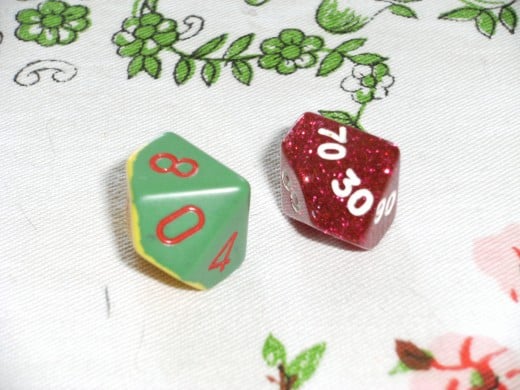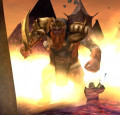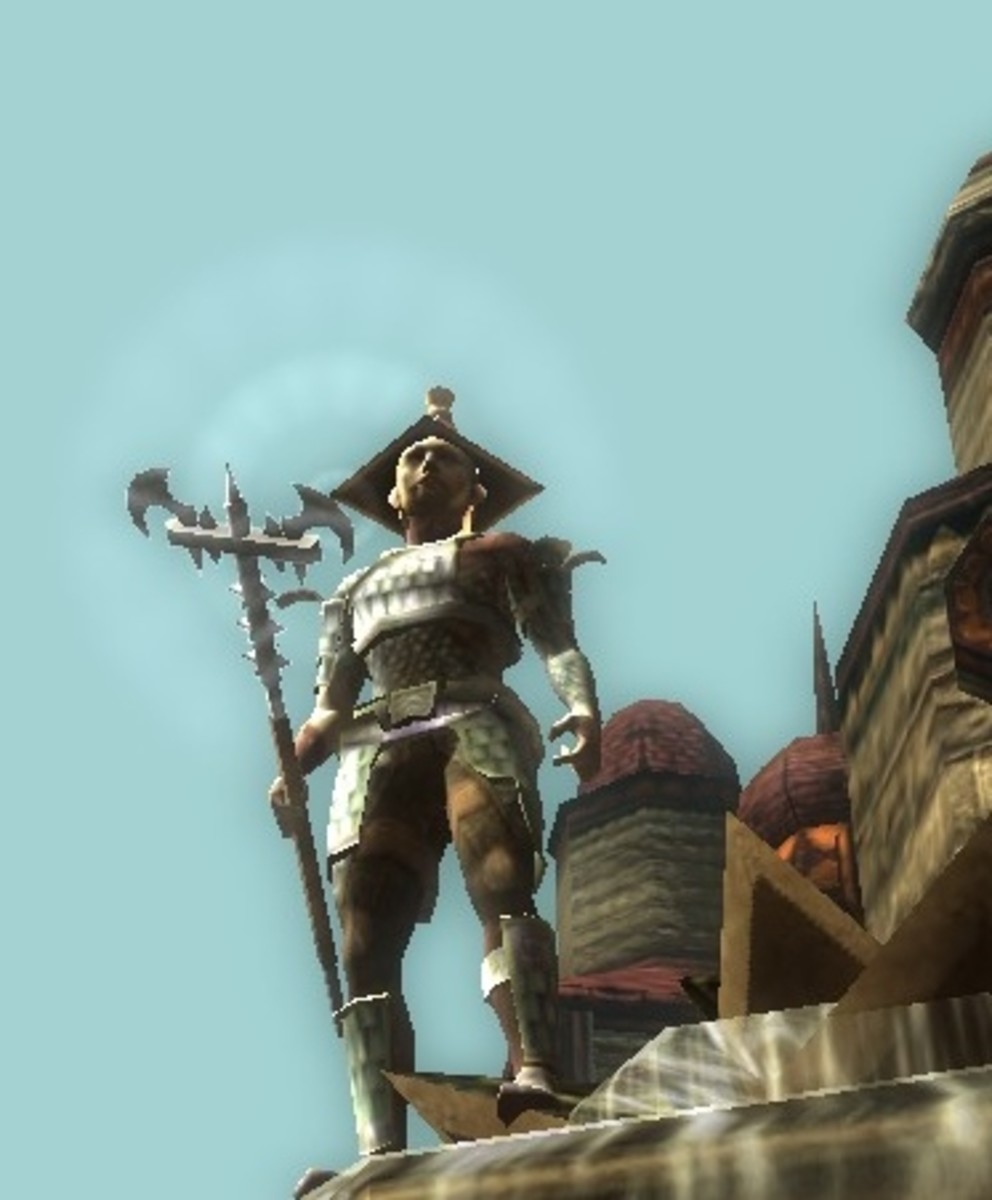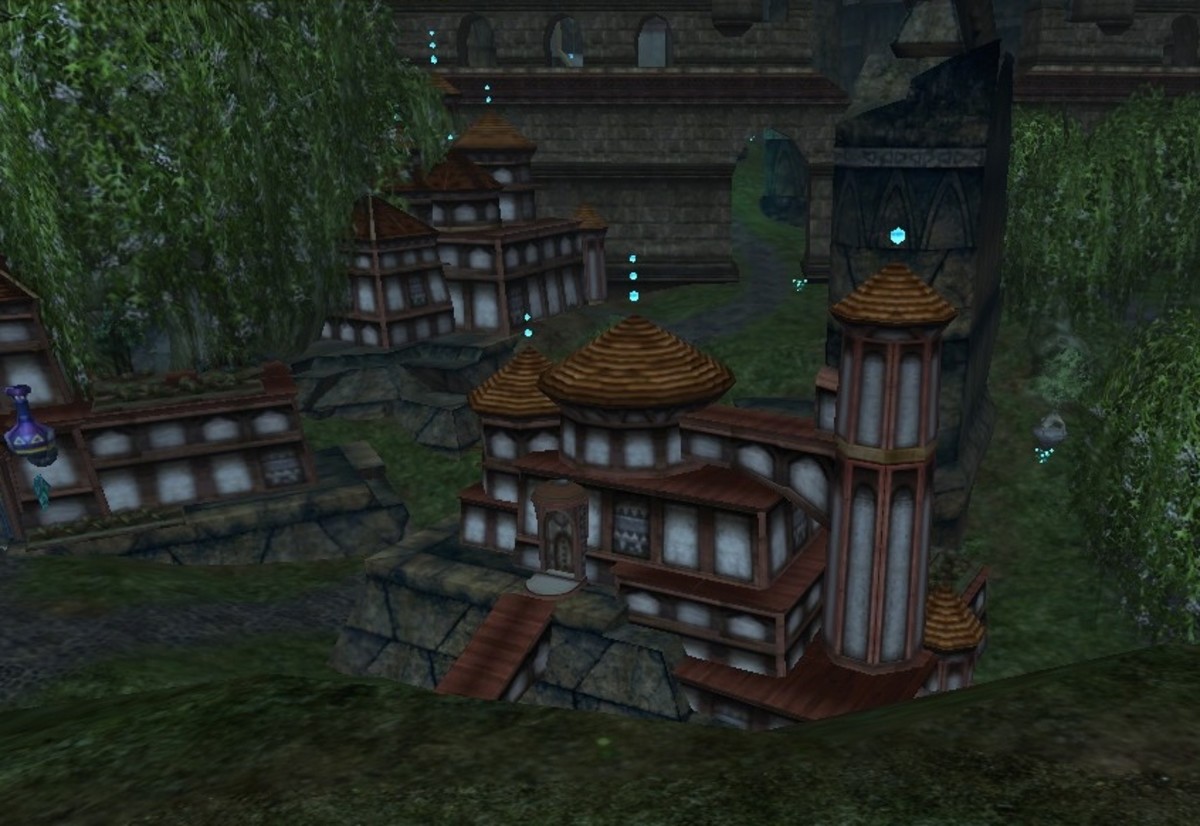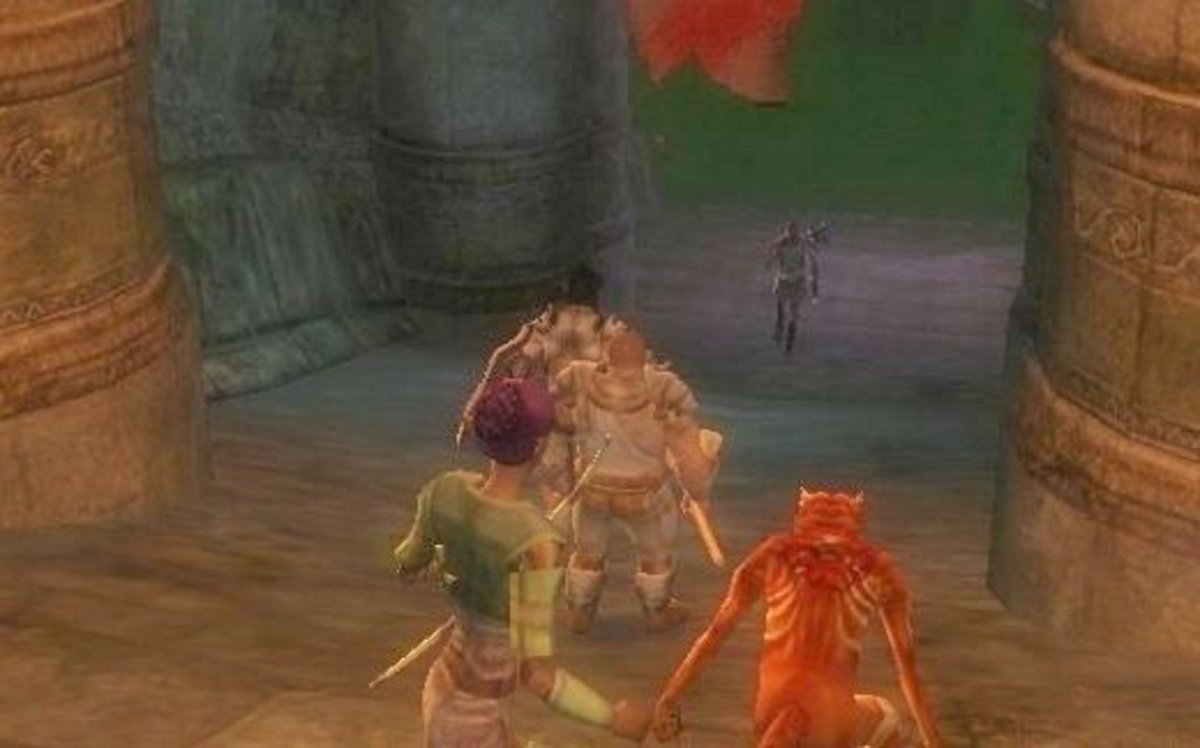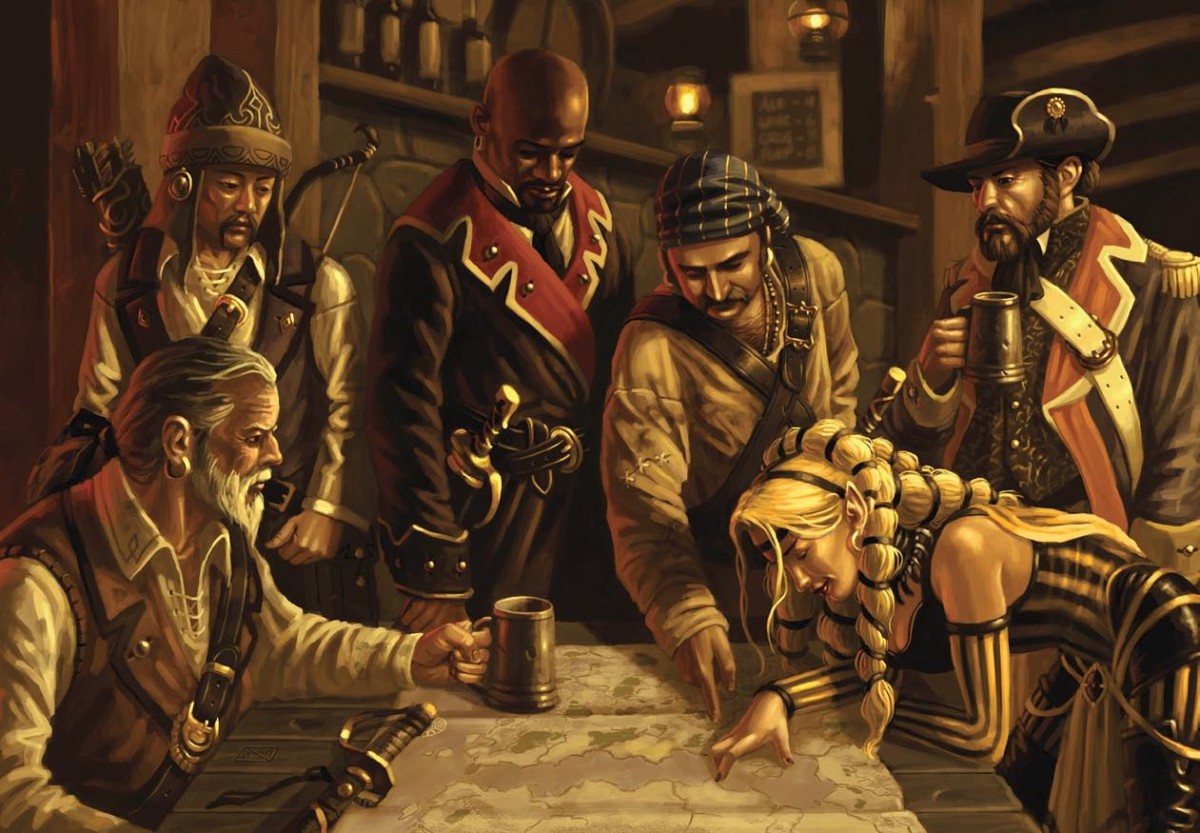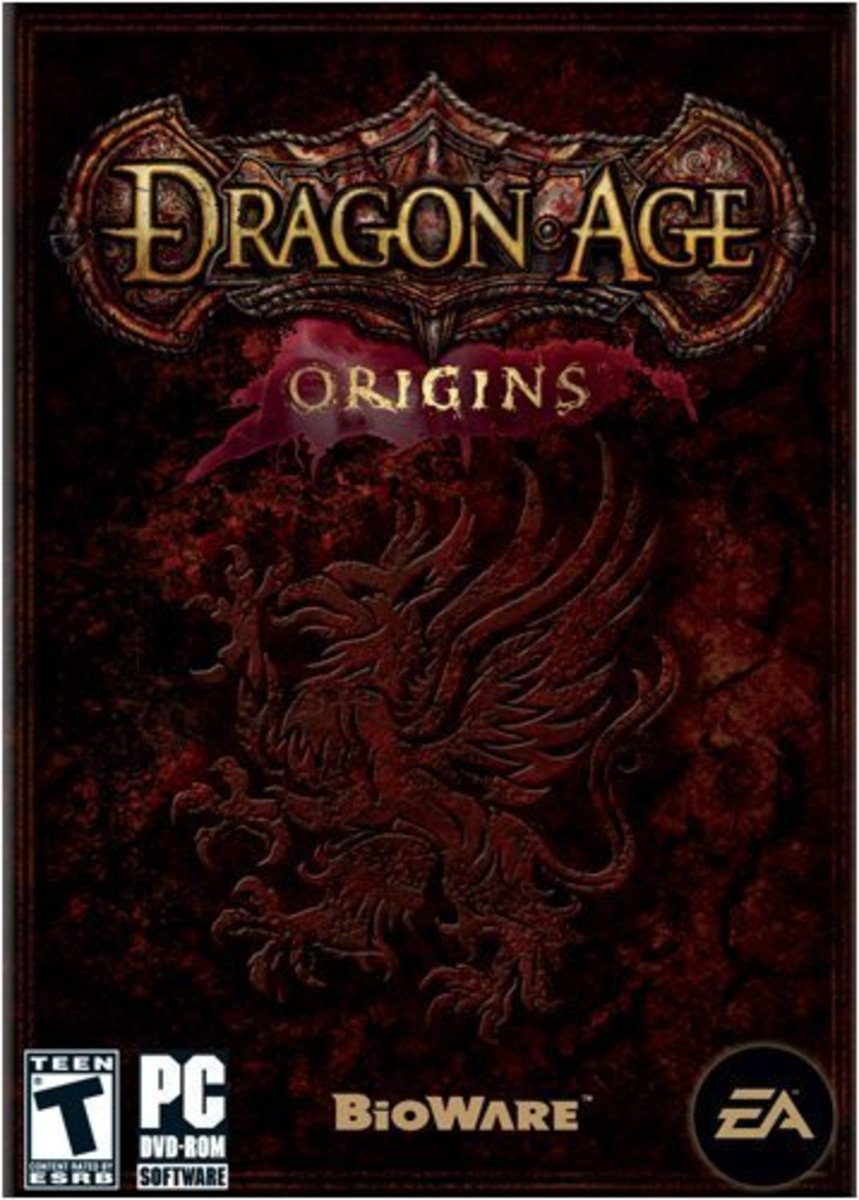Dungeons and Dragons 101
Explaining the terms
Do you have friends or relations who love the game Dungeons and Dragons? Do you find yourself nodding off as they go on for hours about rogues and d20s? Do you really wish they came equipped with a gaming dictionary to explain what they are talking about? If you answered yes to any of the above, then I have written this hub for you. I plan to only go through the basics, but it will give you enough information to understand what they are talking about.
Ok, so what exactly is Dungeons and Dragons? Dungeons and Dragons is a fantasy role-playing game in which players create characters, and play those characters. The game itself will follow a fantasy story, called a campaign, in which the players are adventurers. The stories usually have mythic or fantastic monsters and situations that the players must deal with. Game usually occurs around a table as it requires a hard surface on which to role dice. Dice rolls determine if actions were successful, by what degree and how much damage the character dealt to the enemy.
Players create characters on Character sheets. These sheets can have different appearance depending on which edition the player uses. However, all character sheets will have slots for class, race, age, description, and an assortment of abilities and skills. Players determine their character’s ability at the start of game by rolling four d6’s. This ensures randomness in the characters, and also, a measure of fairness. Players will often refer to ability scores that have a low number as dump slots. If a player rolls a low number, he or she has to decide what ability his character is not going to be good at. Dungeons and Dragons recommends having a group of at least four, though two can play.
Dungeons and Dragons use dice rolls to determine play. However, it is a D20 game. When it comes to dice and their names, the “D” represents “dice” and the number represent how many sides the dice has. So a D20 has 20 sides. Depending on what action the player makes, he or she will have to roll a different type of dice. For example, if a player hits when he swings a war axe, he will need to roll a D10 to determine how much damage his opponent sustained. The only dice roll that does not follow the “dice + number” formula is the percentile. The percentile roll consists of two D10s. One of these D10’s, however, is number by 10, 20, and 30 instead of 1, 2, and 3. I guess no one wants to roll a hundred sided dice, although they do exist for the person who just has to have everything.
In addition to a variety of dice and a character sheet, a player does also need to have access to the source books. There are three core source books for Dungeon’s and Dragons; the Player’s Handbook, The Dungeon Master’s Guide, and the Monster Manual. The Monster Manual provides all the necessary details for the core monsters and enemies the players may face. The Dungeon Master’s Guide provides the rules for game play. The Player’s Handbook provides full descriptions of races, classes, equipment and also the description of spells that the player may need.
I mentioned earlier that one of the elements to a character sheet is class. Class refers to the archetypes the players’ wishes to play. The main classes are bard, cleric, druid, fighter, monk, paladin, rangers, rogues, sorcerer, and wizard. I call them main classes because they come from the core book; The Player’s Handbook. The bard class is a multi-purpose class. They tend to be intelligent and dexterous. They also have access to limited magic including the ability to heal other players. Clerics tend to be the main healers of the classes. They have access to divine magic which, usually, gives them healing magic. Clerics can also focus on “buffing spells” which are spells that add to other character’s abilities such as strength or dexterity. The Druid class also has access to divine magic but they tend to focus on the natural world rather than the supernatural. Fighters are the soldiers of the game. The monk class also focuses on fighting but has special abilities with hand-to-hand combat (think Bruce Lee). Paladins fight for a specific deity or idea; consequently, they also have access to divine magic. Rangers protect Nature and provide guidance through natural areas. Rogues are extremely dexterous and have access to the more skills than the other classes. They also have the ability to open locks. Sorcerers and wizards have access to arcane magic. However, they don’t have many physical abilities. As a result, most wizards and sorcerers focus on distance combat. Wizards learn magic through books, route and study. Sorcerers are born with innate magical abilities. The above information gives you a general idea of all of the classes and how they function in a group.
Players also need to specify their character’s race. Race determines the character’s strengths and weaknesses. It can also determine who the character will relate to the best. For example, dwarves and giants have a long-standing hatred. Consequently, a dwarf probably would not get along with a giant unless there were additional reasons. Elves and dwarves generally don’t have the best of relationships, but they can put aside their differences to work on a common problem. Consequently, race can have a large effect on game play.
Another aspect of a character that can have a large impact on game is their various saves. Characters base their “saves” on their class and abilities. Abilities represent the major aspects of a character as divided into strength, dexterity, constitution, intelligence, wisdom, and charisma. I mentioned earlier players roll four d6’s to determine the character’s abilities. Each class also gains a base save for the individual Saves. Now, different editions had different saves. The edition I am most informed on is the 3.5 edition which has your Reflex (Dexterity), Fortitude (Constitution) and Will (Wisdom) save. If a player does something clumsy, even outside of game, he may state: “oops, I failed my reflex save.” He’s referring to the game mechanic above.
Another term that you will hear is “Base Attack Bonus” also known as “BAB”. Any weapon that a character may use has an inherent attack bonus based on his class. The player can then add his strength to gain his attack bonus. His total attack (attack bonus + D20) must be more than his opponent’s “AC” or “Armour class”. Armour class is determined by the character’s dexterity, size and any armour that he or she may have purchased. If the attacking player does roll high enough to beat his opponents AC, then he rolls his damage. The opposing character loses that amount in hit points. Hit points are essentially the amount health the creature has before he dies.
The last term that I would like to explain is “Dungeon Master.” A Dungeon Master is the story teller who guides the players through the adventure. Players ask the Dungeon Master questions about the environment, distance and descriptions of the monster they are facing. Dungeon Masters also play the monster characters, as well as any environmental (called NPC, non-player characters) such as an inn keeper or town guard.
I have taken some photos of the various types of dice for your reference. I hope this will help you the next time your friend or relation is detailing his latest adventure. Try to enjoy the story; most times they are very entertaining. If you have any other terms you would like explained, please leave a comment and I will try to find out the information for you.
The D20
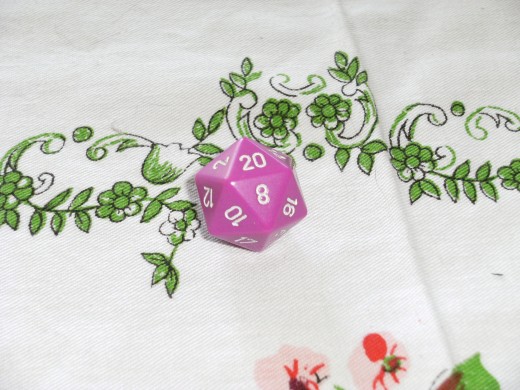
The D10
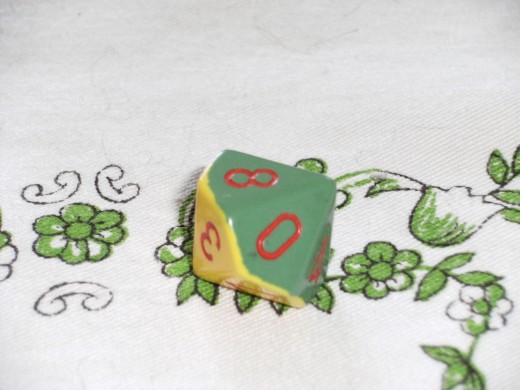
The Percentile
